

Miguel de Cervantes' Don Quixote (1605)
the Borghese Collection (early seventeenth century)
the Villa Borghese (1600)
the Codex Atlanticus (end of the sixteenth century)
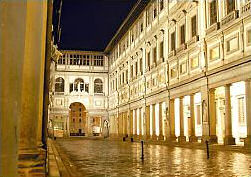
the Uffizi (1581) by Giorgio Vasari
Ballet (1581)
Michel de Montaigne's Essays (1580)
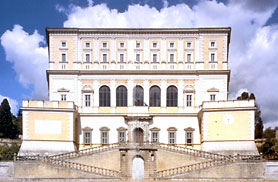
Villa Farnese (1550)
Commedia Dell'arte (1550) emerged in Italy
Giorgio Vasari's Lives of the Artists (1550)
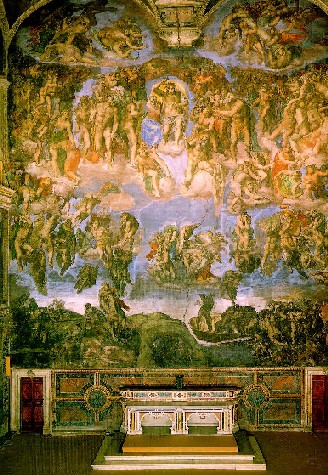
the Last Judgement by Michelangelo (1541)
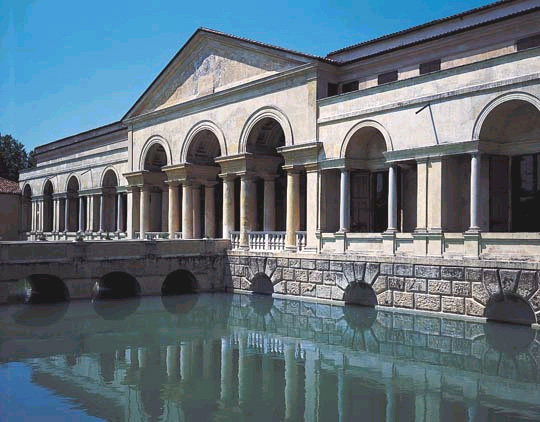
Palazzo del Te (1534)
Machiavelli's Prince (1532)
Francois Rabelais' la Vie de Gargantua et Pantagruel (1532)
Mannerism (1527)
Raphael's Transfiguration (1520)
Raphael's tapestries for the Sistine Chapel (1519)
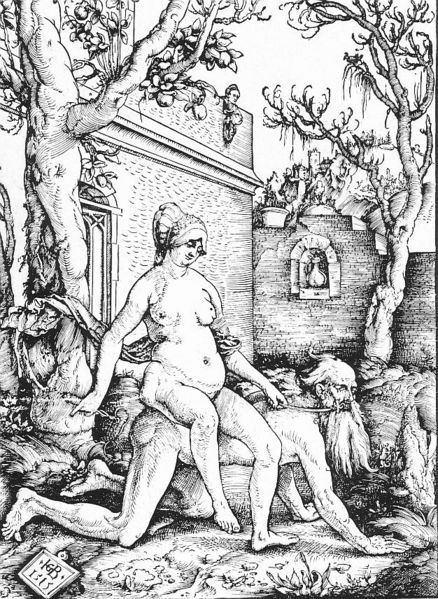
the Lai d'Aristote (1513) a 13th century tale was illustrated by Hans Baldung Grien
the English Renaissance (early 16th century - early 17th century)
Leonardo's Virgin and Child with St Anne (1510)
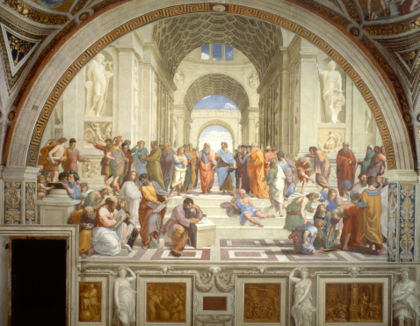
the School of Athens (1510)
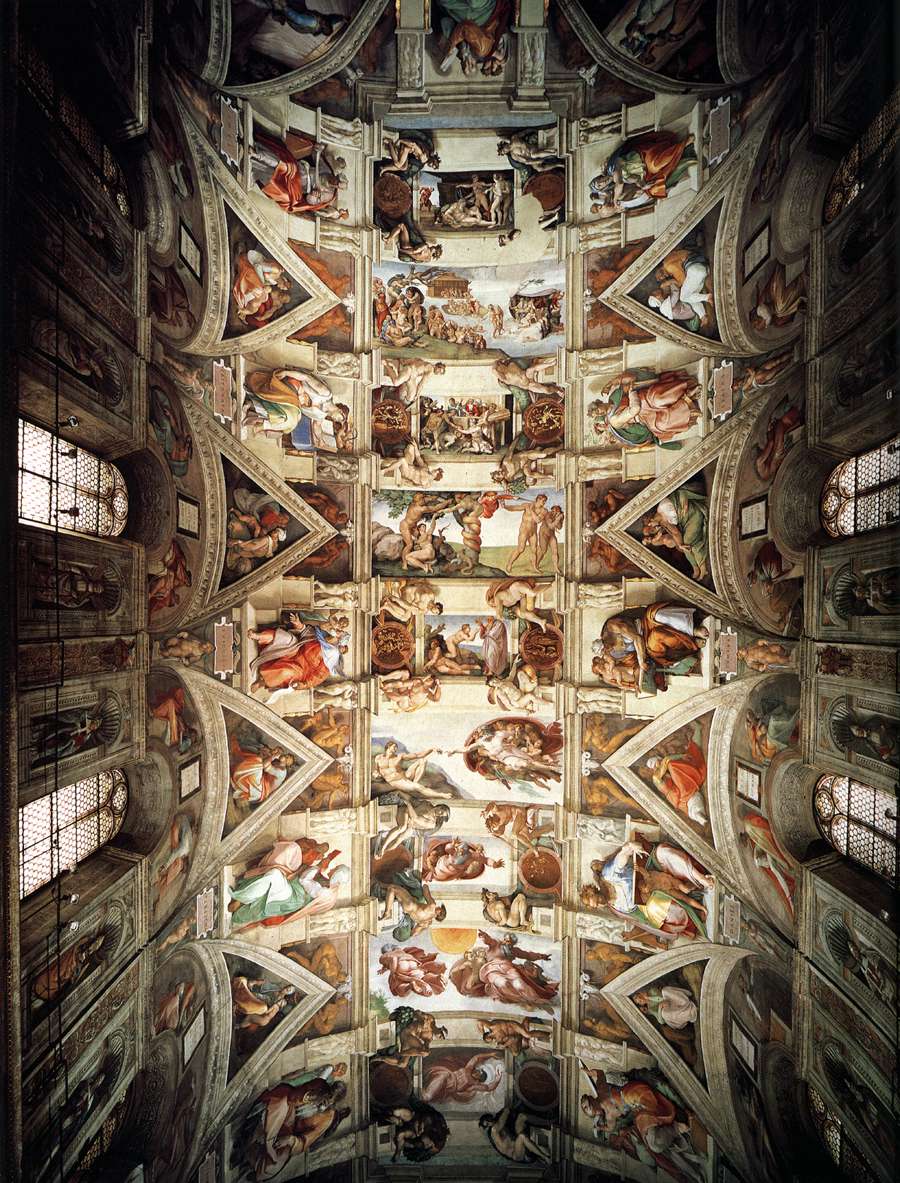
Michelangelo repainted the ceiling of the Sistine Chapel (1508-1512)
Raphael's Spozalizio (1504)
David by Michelangelo (1504)
High Renaissance (1500-1525)
Northern Renaissance (1500)
Leonardo's Last Supper (1498)
the Vitruvian Man (1492)
the Sistine Chapel (1484)
Leonardo da Vinci started painting in his his own workshop (1473)
Lorenzo de' Medici (1470) gathered at his court the leading artists and intellectuals of his day
Marsilio Ficino translated the works of Plato into Latin (1463-1469)
Tempio Malatestiano (1450s)
Cosimo de’ Medici of Florence founded the Biblioteca Medicea Laurenziana (1444)
a major medical library. For over a century, use of the library is restricted to scholars
approved by the Medici family. In 1571 it opened to the public
Giovanni di Bicci de' Medici became a patron of the arts (1419)
Poggio Bracciolini unearthed Manuscripts of classical writers (1414)
such as Lucretius, Columella, Silius Italicus, Manilius and Vitruvius
the Age of Discovery (early 15th century - early 17th century)
Humanism (14th - 15th century)
Dante Alighieri's Divine Comedy (1321)
Italian Renaissance (14th century)
the Renaissance (13th century)
the writings of Aristotle were rediscovered in the West (1180)
by Averroes,
Moses Maimonides and
Thomas Aquinas
the Renaissance of the 12th century
the Ottonian Renaissance (951-1024)
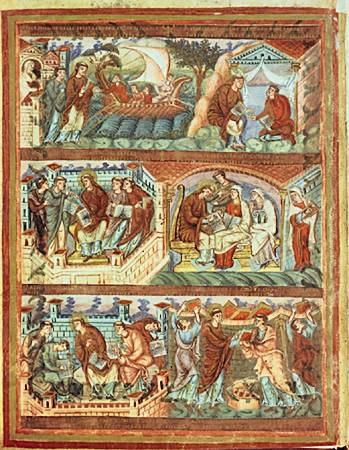
Carolingian Renaissance (9th century)

the Islamic Golden Age (700-1400)